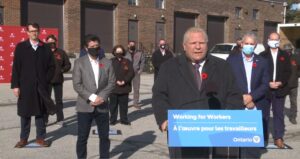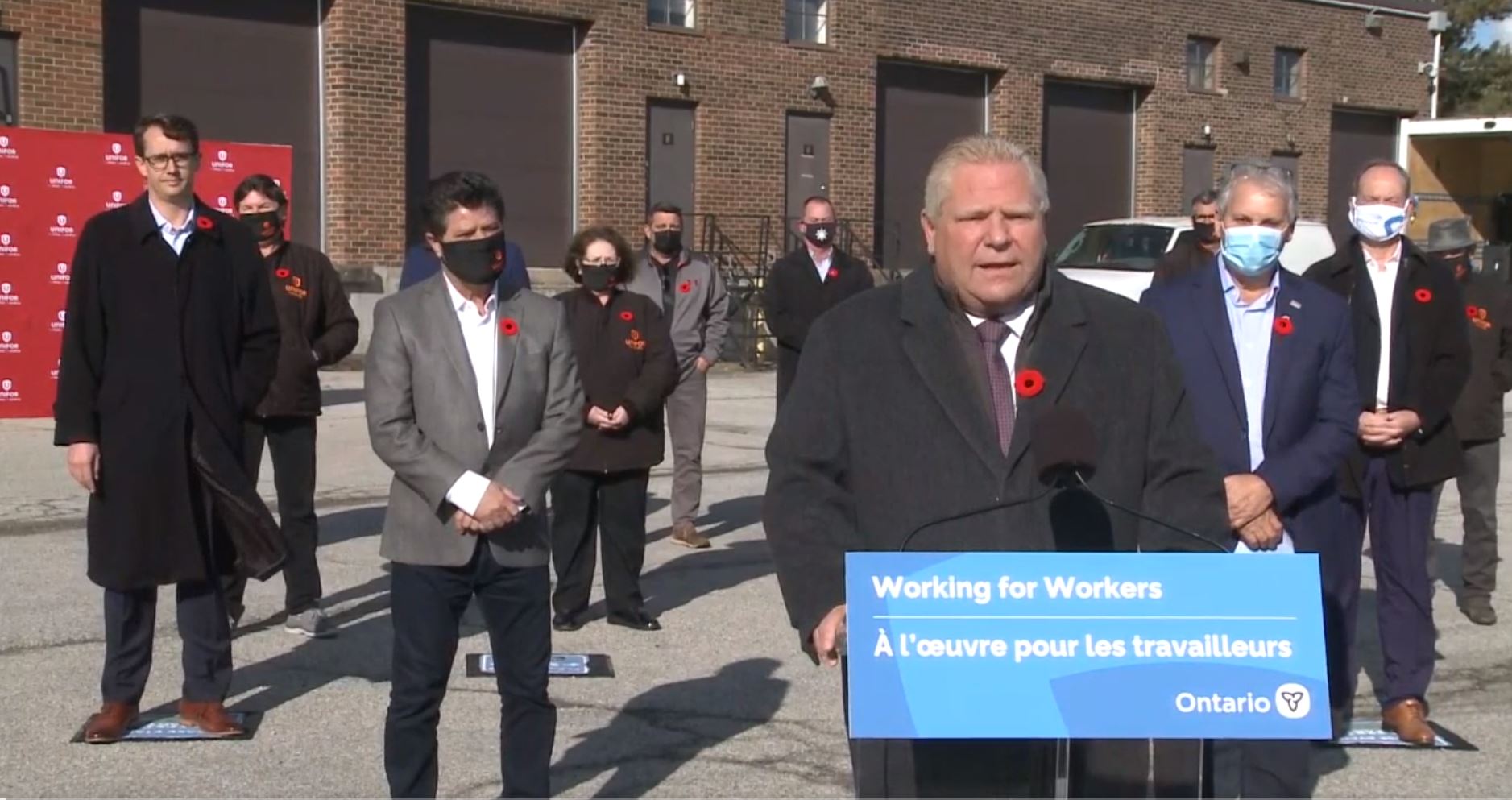Election campaign with the Omicron risk and future uncertainty

TORONTO – There are five months to the provincial vote, but in Ontario the election campaign has already begun and continues unabated. The government led by Prime Minister Doug Ford in recent days has given way to the Scientific Technical Committee and Chief Medical Officer Kieran Moore and has started a chain ad campaign that have so much the flavor of electoral promises.
New hospitals – starting with the expansion of the Mississauga medical district, which will become the largest in Canada – new cases of long-term care, new highways – including the controversial Highway 413 – new public investment projects: the executive is promising an avalanche of funds for initiatives that will be carried out only in the event that the electorate of Ontario should once again entrust the keys of the province to the conservative leader. The polls, for now, outline a fairly defined political scenario and balance of forces that have crystallized with clarity.
Ford’s Progressive Conservative will be the party to beat in the June elections, with Andrea Horwath’s NDP and Steven Del Duca’s Liberal Party forced to chase to regain lost ground. The latest poll carried out by EKOS sees the Conservatives firmly in command in voting intentions at 32.8 percent, followed by the Liberals at 28.3 and the Neo-Democrats at 23.1.
With these numbers, however, it is very unlikely that the prime minister will be able to guarantee an absolute majority in Queen’s Park and this explains the reason for the start of an unofficial electoral campaign so soon.
But another element of great importance is evident, if we want to better frame the situation: the vote of June 2, 2022 will be a popular referendum on the management of the pandemic by the government currently in office. We have already experienced this dynamic at the federal level in the elections last September, even if the big difference lies in the timing of the vote.
At the national level, the return to the polls was decided by Prime Minister Justin Trudeau, who put the post back in the hands of the governor general and called the vote. The election campaign lasted less than two months: in Ontario, on the other hand, the campaign will be very long, with all the uncertainties related to the Covid-19 pandemic.
Omicron variant, vaccine efficacy, vaccination of children, infections in schools, resilience of the health system in the face of the risk of crowding of intensive care: these are only the main grey areas in this fourth wave of the pandemic and it is evident how the generalized uncertainty will have a significant weight during the electoral campaign. Compared to the federal vote, it lacks – at least for now – a clearly no vax political fringe, a role played at the national level by Maxime Bernier’s People’s Party.
The galaxy no vax, between anti lockdown and vaccine skeptics, represents a pool of votes not indifferent that no party, until now, has wanted to captivate.
Indeed, only the government in office, following some controversial decisions and alleged delays in activating anti-Covid limitations and restrictions, has been accused of too much prudence precisely for a certain political calculation, that of grabbing the favors of that slice of the population still skeptical. We will see in the coming months whether the provincial political class will maintain a coherent attitude, at least on this point.



